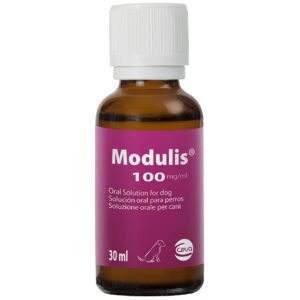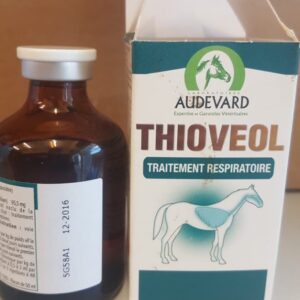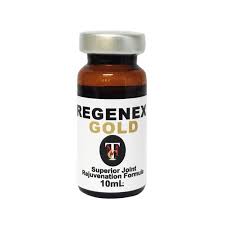flumethane INJECTION is a chemical modification of prednisolone, which possesses greater anti-inflammatory and gluconeogenic properties than the parent compound when compared on an equivalent basis. Due to the potency of flumethane INJECTION, dosage recommendations should be consulted prior to drug administration.flumethane INJECTION is a chemical modification of prednisolone, which possesses greater anti-inflammatory and gluconeogenic properties than the parent compound when compared on an equivalent basis. Due to the potency of flumethane INJECTION, dosage recommendations should be consulted prior to drug administration. The structural formula is as follows: Active ingredient: flumethane 0.5mg/ml Preservative: benzyl alcohol 9mg/ml Description: The active ingredient of flumethane INJECTION is flumethane which occurs as a white to creamy white, odorless, crystalline powder. The appearance of flumethane INJECTION injection is a clear, colorless to slightly yellowish, mobile liquid. Experimental Studies: The acetate of flumethane has been reported to have approximately 700 times the activity of hydrocortisone in the rat liver glycogen disposition assay 1,2. Veterinary experimental studies utilizing eosinophil depression in normal dogs and blood glucose levels and eosinophil depression in normal cattle as parameters of drug activity in comparison tests involving dexamethasone and prednisone, suggest gluconeogenic and anti-inflammatory potencies for flumethane of the following approximate order: Four times that of dexamethasone. Sixty to eighty times that of prednisone. Clinical evidence of drug potency obtained during evaluation of the compound further substantiates the above experimental findings. flumethane INJECTION is recommended for various rheumatic, allergic, dermatologic and other disease states which are known to be responsive to the anti-inflammatory corticoids. Bovine Indications: 1. Ketosis. 2. Musculoskeletal conditions, due to the inflammation of muscles or joints and accessory structures where permanent structural changes do not exist such as arthritis, sprains, myositis or muscular soreness. 3. Supportive therapy in milk fever, acute mastitis, shipping fever, metritis, pneumonia and founder. Equine Indications: 1. Musculoskeletal conditions due to inflammation where permanent structural defects do not exist such as bursitis, carpitis, myositis, osselets, tendinitis, sprains and muscular soreness. 2. Supportive therapy in laminitis, heat exhaustion, fatigue and distemper (strangles). Canine Indications: 1. Musculoskeletal conditions due to inflammation of muscles or joints and accessory structures where permanent structural changes do not exist, such as arthritis, osteoarthritis, sprains, disc syndrome and muscular soreness. 2. Acute and chronic dermatosis of varying etiology to help control the irritation, pruritus and inflammation associated with these conditions. The drug has proven useful in otitis externa in conjunction with topical medication for similar reasons. 3. In allergic states such as urticaria, hives, insect bites and asthmatic conditions. 4. Shock and shock-like states due to hemorrhage, trauma or endotoxins. 5. Supportive therapy prior to or following surgical procedures. 6. Supportive therapy in various disease conditions such as hepatitis, distemper, cystitis, tracheobronchitis and tonsillitis. Feline Indications: 1. Musculoskeletal conditions due to inflammation of muscles or joints and accessory structures where permanent structural changes do not exist, such as sprains, arthritis and muscular soreness. 2. Acute and chronic dermatosis of varying etiology to help control the pruritus, irritation and inflammation associated with these conditions. 3. For appetite stimulation in combination with B-complex vitamins. In human medicine various corticosteroids have been used for their palliative or remissive effect in a number of disease entities. These diseases include acute and chronic leukemia, various auto-immune disorders such as hemolytic anemia, idiopathic thrombocytopenic purpura and systemic lupus erythrematosus, nephrosis, ulcerative colitis, asthmatic conditions and pulmonary emphysema. 4. The use of corticosteroids as therapy in these human disease states suggests that they may prove of value in their counterparts in animals when encountered. *When flumethane INJECTION is used as supportive therapy, it does not replace the need for standard, primary therapy. flumethane INJECTION is recommended for parenteral administration using various routes depending on the animal species under treatment. The intravenous (IV) use of the compound may be indicated when a rapid method of administration is desired such as in toxemias or shock or shock-like states. The following recommended dosages should be used as therapeutic guides. Each animal should be treated on an individual basis and dosage adjusted according to the response noted. Dosage and Administration: Adult horses: 1.25 to 2.5mg daily by intravenous (IV) or intramuscular (IM). If necessary, the dose may be repeated. Dogs: 0.0625 to 0.25mg daily by intravenous (IV), intramuscular (IM) or subcutaneous (SQ). If necessary, the dose may be repeated. Intralesional dosages in the dog have ranged from 0.125 to 1.0mg, depending on the size and location of the lesion under treatment. Cats: 0.03125 to 0.125mg by intravenous (IV), intramuscular (IM) or subcutaneous (SQ). If necessary, the dose may be repeated. If desired, therapy with flumethane injection may be substituted for other corticoids by the appropriate adjustment of dose levels. flumethane INJECTION Cautions: The usual precautions and contraindications for adrenocorticoid hormones are applicable with this compound. The close observation of animals that are under treatment with this drug is necessary since the usual signs of adrenocorticoid overdosage, which include potassium loss, sodium retention, fluid retention, weight gain, etc., may not be readily observed. Under clinical and experimental trials, few side effects have been noted but, if they occur, the veterinarian should be prepared to take the necessary steps to correct them. Continuous therapy with flumethane INJECTION, especially at high dose levels, may result in suppression of adrenal cortical function. In such cases, a temporary suspension of therapy and stimulation of the adrenal cortex by the use of ACTH
Sale!
injections
flumethane
$60.00 Original price was: $60.00.$50.00Current price is: $50.00.
flumethane
Category: injections
Tags: #cheap #FILYBOL in UAE, #flumethane #how to give flumethane for horses and pets, #flumethane? #flumethane from Horsemedcare #saralgyl #wheretobuyflumethane for horses, #indubai #flumethane for horses side effects #flumethane reviews #compounded flumethane for horses #horse saralgyl #flumethane and glucosamine, #What is horse flumethane? #How quickly does flumethane work? #What does FILYBOLdo for horses? #What is Saralgyl? #Horse Saralgyl--Reactions? #Saralgyl? #Saralgyl from Horsemedcare #Pentosan Gold, #What is horse flumethane? #How quickly doesflumethane work? #What does legend do for horses? #What is flumethane? #Horse Prerace flumethane--Reactions?, Australia, camel, CANADA, cattle #flumethane, dubai, italy, OMAN, Qatar, spain
Related products
- injections
CoQ10 25ml
Rated 0 out of 5$65.00Original price was: $65.00.$50.00Current price is: $50.00. Add to cart - Amino Acid, Vitamin & Mineral Supplements
Modulis 100 mg/ml
Rated 0 out of 5$55.00Original price was: $55.00.$50.00Current price is: $50.00. Add to cart - Amino Acid, Vitamin & Mineral Supplements
Thioveol 50ml
Rated 0 out of 5$45.00Original price was: $45.00.$40.00Current price is: $40.00. Add to cart - Amino Acid, Vitamin & Mineral Supplements
Regenex Gold
Rated 0 out of 5$70.00Original price was: $70.00.$50.00Current price is: $50.00. Add to cart






Reviews
There are no reviews yet.